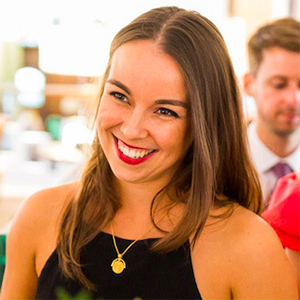Midlands 4 Cities funded PhD student, Jessica Venner, tells us more about her experience researching Classics, Ancient History and Archaeology at the University of Birmingham.

Why did you choose the University of Birmingham as your lead M4C partner institution? Do you receive support from any other university within the consortium?
“The University of Birmingham is a well-respected and vibrant university with a very active Classics, Ancient History and Archaeology department. The high impact of many staff members and student’s research drew me to the university, as did the expertise of my supervisors, Dr Gareth Sears and Professor Diana Spencer. Also the library resources at Birmingham are fantastic for my subject!"
Tell us a little bit more about your research project and why you choose to study a PhD in this area?
"My research project takes an interdisciplinary approach to subsistence and commercial gardening in first century AD Pompeii, up to the eruption of Vesuvius in AD 79. In my thesis I aim to investigate the impact of urban agricultural gardens on the local population of Pompeii during its final decades, and reveal the symbolic and economic role of these spaces in local monetary and non-monetary economies.
The mapping of productive gardens already identified in previous excavations, as well as the identification of as yet unidentified sites, will form a part of this analysis. In this, I identify for the first time a rise in market gardens following the major earthquake which hit the town in AD 62 and introduce a theoretical model for categorising ‘new’ gardens. This project is largely a development from my MA thesis which looked at the local production and consumption of food in Pompeii’s Regions I and II. Gardens hold so much potential for understanding the personal lives and commercial endeavours of the Pompeian population, and for opening a window onto their everyday activity. We have so much archaeological information about market gardens in Pompeii, but little scholarly attention has been paid to this category since the pioneering work of Wilhelmina Jashemski in her major excavations in the city between the 1950s and 1970s. I wanted to continue her legacy and highlight the historical potential of these spaces.”
What is life like as an M4C researcher at the University of Birmingham?
“The Midlands4Cities community is excellent. There are lots of opportunities to collaborate, to explore your research in new ways, and to improve your skills and confidence both personally and professionally. The challenges of COVID-19 make a community difficult to keep together, but I think that the scholarship programme has made this possible."
What support, from M4C or the University of Birmingham, have you received during your PhD?
“The Student Development Fund provided by M4C has significantly improved the quality of my research. It has enabled me to visit Pompeii, Rome, Ostia, and Naples for data collection, something that I could not have afforded without their support. I have also been able to take extra-curricular courses, such as a Roman Artefacts course at MOLA in London, and an RHS course, for improving my employment prospects. Regular writing workshops from UoB and M4C, for example the Royal Literary Fund retreats, have been invaluable for my development. More recently, I have been tapping into the resources provided by UoB on gaining employment beyond academia.
Most significantly, the support that I have received from my two supervisors has been invaluable. They always have time for me, my monthly meetings are always useful and engaging, and their feedback is always thoroughly detailed. I have learned a great deal from them both and I am extremely grateful that I should have such a supportive team of supervisors.”
Outside of your research, what experience have you gained and how will it help you in the future?
“I have taken numerous courses and workshops to improve my employability over the course of my PhD. At UoB in my first year I undertook the Reading Italian for Researchers course, which I still use to this day for reading Italian papers. The M3C-BSR City of Rome Interdisciplinary Workshop over a few days in Rome was incredible. I was able to look outside of my research at the wonders of Rome and engage with other researchers from across the cohort on projects and in debates and discussions. The Practical Epigraphy Workshop at the Ashmolean, in collaboration with the University of Oxford, was incredible and I learned so many wonderful (and niche) skills.
I have also improved my object handling experience for my career aspirations with volunteering work at the Ashmolean Museum, Oxford, as a Coin Handler, and my MAAST course on Roman Artefacts at MOLA, specialising in pottery and glass, and learning skills such as photography, cataloguing, and object identification and care. In my current final year, I now have a firm career aspiration and, as a result, have taken courses and workshops in Museum Essentials at the Museums Association, a certificate in Digital Preservation, Collections Management training at the Chiltern Open Air Museum (where I now volunteer), and Digital Archiving work at the Ashmolean Museum.”
What advice would you give someone planning on making an M4C application?
“Put your passion onto the page. Make sure that you come through your application. They are reading many, so of course you want to make it stand out, but do this by making it relevant for today, either in light of current debates in your area of research, or for contemporary needs or demands in society. I still look at my work from a sustainability point of view and promote the lessons that we can learn from the Romans about urban land use and agriculture. Most importantly, spend lots of time and do not rush your application. If you do get in, it is the best experience that you could ever ask for, so make sure you get it right!”